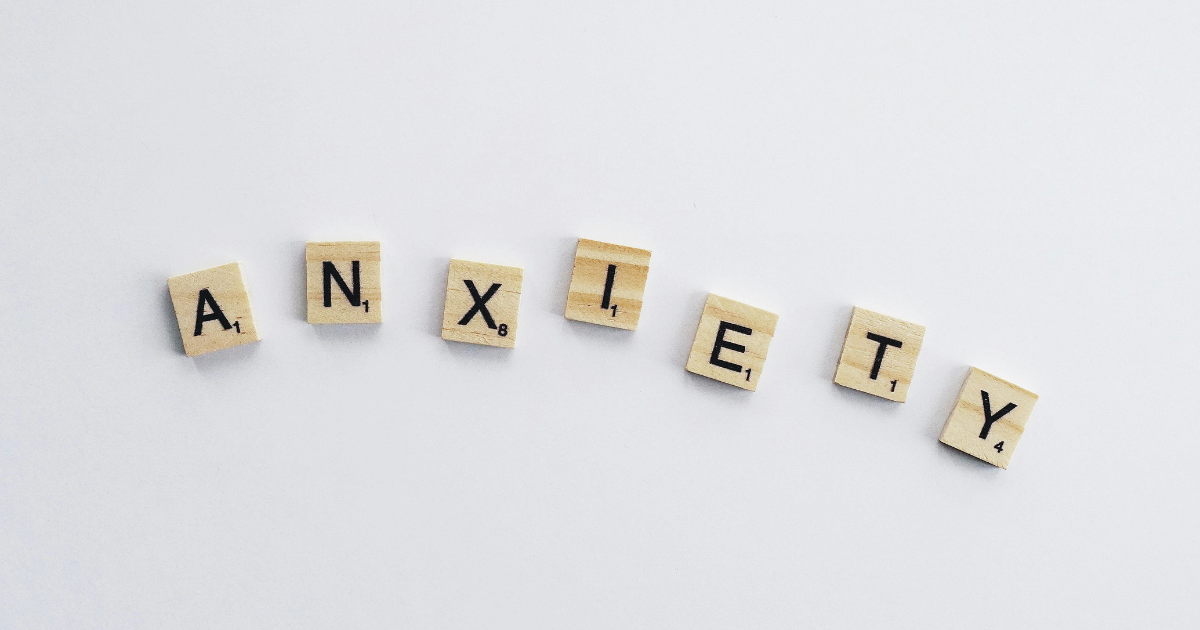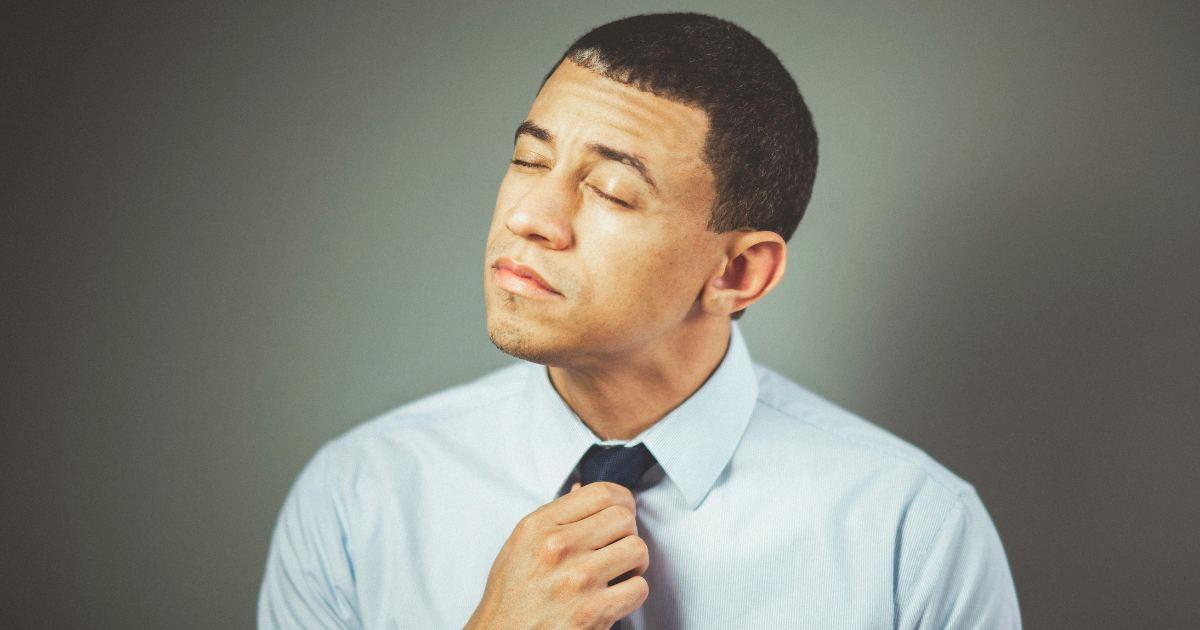Anxiety sucks. There, I said it. Sometimes, it’s loud and obvious, sometimes, it creeps in quietly and messes with your whole day. It hits before that meeting, in traffic, in the middle of the night — or for no clear reason at all. The worst part? It makes you feel like you’re the only one losing it.
Anxiety shows up in all kinds of ways — before a meeting, stuck in traffic, or sometimes out of nowhere. And when it hits, it’s annoying as hell.
This isn’t going to be a miracle cure — let’s be real — but it is a list of simple things that can actually help. Stuff you can do today. Stuff that might work for your brain and your body. Let’s take it from the top.
In this blog post, you’ll find simple, practical strategies to help you calm your mind and feel more in control when anxiety shows up. Let’s dive in and break it down.
Why Am I Feeling Anxious?
Sometimes, you know why you’re anxious. Other times? No clue. It just shows up like an unwanted guest who doesn’t take the hint. And yeah, that makes it worse.
Your body has this built-in alarm system — the fight-or-flight thing — and it’s supposed to keep you safe. But when it gets triggered by things like emails, bills, or weird social vibes, it goes off for no good reason. That’s when anxiety takes over.
You’re not broken. You’re responding to stress — even if that stress is just… life.
Anxiety can feel like it shows up out of nowhere. One minute you’re fine, the next your heart’s racing, and your brain won’t stop. And the worst part? It’s easy to think you’re broken or doing something wrong when you feel like that.
The truth is, your body’s just trying to protect you. Your nervous system kicks in like there’s danger, even if it’s just a packed calendar or an awkward conversation. When that happens, the best move is to hit pause and notice what’s really going on.
Common Daily Triggers to Watch For
Here’s a quick rundown of stuff that quietly messes with your head:
| Trigger | Why It Matters |
| Lack of sleep | Makes you moody, foggy, and way more reactive. |
| Caffeine overload | Jitters, heart racing, brain on overdrive. Not ideal. |
| Too much screen time | Constant scrolling keeps your brain stuck in alert mode. |
| Heavy workdays | Even when you’re done, your mind keeps running. Deadlines and back-to-back meetings keep your mind racing. |
| Social pressure | Even small talk feels like climbing a mountain when you’re anxious. |
If any of that hits home, you’re definitely not the only one. And no — you’re not overreacting or making it up. This stuff is real.
The more you get what sets off your anxiety, the easier it gets to figure out how to stop feeling anxious before it snowballs. It’s not about overthinking — it’s about paying attention so you can actually do something about it.
How to Stop Feeling Anxious Immediately
When anxiety hits out of nowhere, you might ask how to reduce anxiety immediately. Your brain doesn’t care that you’re in public or on a deadline. You just need it to stop — fast. Here’s what can help, no prep or fancy apps required.
Grounding Techniques for Instant Relief
- 5-4-3-2-1 Trick – Look around: name five things you see, four you can touch, three you hear, two you smell, and one you taste. It forces your mind to chill and focus.
- Cold Water – A splash on your face or hands sends a signal to your brain that you’re not in danger. It’s a simple tool when you need to remember how to stop feeling anxious quickly.
- Box Breathing – Inhale for four seconds, hold for four seconds, exhale for four seconds, and hold for four seconds. Rinse and repeat.
- Say What You’re Feeling – Out loud. “I’m anxious.” It weirdly helps take the power away.
Coping Mechanisms for Anxiety That Actually Work
Want to know how to relieve anxiety fast? Quick tricks can help in the moment, but what really makes a difference is having habits in place before anxiety hits. Things that lower your stress levels day by day.
Figuring out how to stop feeling anxious isn’t only about what you do in the middle of a bad moment — it’s also about the little habits and choices you make every day. Building solid coping tools for anxiety gives you something steady to fall back on when life gets messy.

And the more you stick with these habits, the easier it becomes to handle stress and keep anxiety from taking over.
- Morning quiet time – Doesn’t need to be deep meditation. Just five minutes to breathe, stretch, or stare at your coffee. A calm morning sets the tone for the day.
- Less phone time – Social media chaos doesn’t help. Schedule scroll breaks. Too much time on your phone or computer can keep your stress levels high.
- Do something with your hands – Clean, cook, doodle, knit — whatever. Keeps you grounded. Activities that require focus can help distract your mind from stress.
- Call someone – Even a short chat with someone who gets it can shift your whole mood. Talking to someone you trust can provide comfort and perspective.
Natural Ways to Relieve Anxiety Without Medication
Medication helps, but not everyone wants to go that route. If you’re curious about natural stuff, here are a few go-tos people swear by. These options can support your body and mind as part of your strategy for how to stop feeling anxious without relying on prescriptions.
Supplements, Herbs, and Holistic Support
- Magnesium – Helps relax your nervous system. Lots of people are deficient.
- L-theanine – Comes from green tea. Calms you without making you sleepy.
- Ashwagandha – Balances stress hormones. Worth trying.
- Chamomile + Lavender – Classic for a reason. Tea, oils, or capsules. Known for their calming properties, they can be used in teas or oils.
- Omega-3s – Good for your brain and mood. Found in fish and flax, these support brain health and reduce inflammation.
How to Reduce Anxiety Fast in Public or High-Stress Moments
You’re out. In a crowd. At work. Somewhere loud. And boom — anxiety hits. It’s tough to figure out how to stop feeling anxious when you can’t step away or explain what’s happening. Here’s what you can do without anyone knowing:
Discreet Techniques You Can Use Anywhere
- Feel your feet – Notice how they press into the floor.
- Pocket item – A stone, ring, anything you can fidget with calmly.
- Mental mantras – “I’m okay.” “This will pass.” Keep repeating.
- Breathe out slow – No one notices, but your body sure does.
The Connection Between Movement and Mental Calm
Your brain and body are connected — no surprise there. Moving helps process stress and burn off nervous energy. No need to run marathons.
Stretch. Walk. Put on music and dance around your room like nobody’s watching. It works.
When to Seek Help for Anxiety That Won’t Go Away
If anxiety’s been running the show for weeks or months and nothing’s helping, it’s okay to ask for help. You don’t have to wait until it gets unbearable.
Trouble sleeping, avoiding things, crying randomly, feeling numb — it all counts. Talk to someone. A therapist can help you figure it out without judgment.
Get Help Today From Pacific Coast Mental Health
You don’t have to push through this on your own. If you’re ready to get support, we’re here for you. At Pacific Coast Mental Health, you’ll find people who listen, care, and actually help. Reach out. Let’s make things better.
FAQs
What are quick ways to stop feeling anxious?
Cold water, deep breathing, or the 5-4-3-2-1 trick. Fast and easy.
How can I reduce anxiety naturally?
Exercise, herbs, unplugging from screens, and rest. Your nervous system will thank you.
What are the best coping mechanisms for anxiety?
The ones you’ll actually do. Movement, connection, and anything that brings you back to now.
Does deep breathing help with anxiety?
Yep. It tells your body you’re safe, which is half the battle.
Can exercise help reduce anxiety?
For sure. Doesn’t need to be intense — just regular movement makes a big difference.





